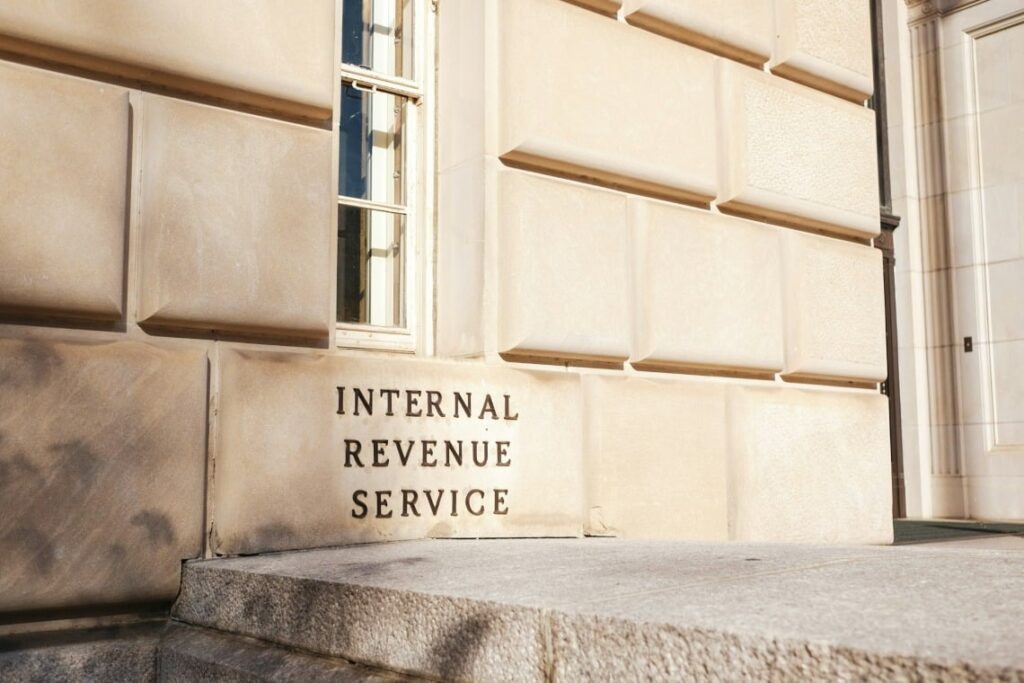The United States Internal Revenue Service (IRS) recently issued new regulations that impose strict obligations on financial brokers, including the front-ends of Bitcoin and DeFi platforms. The move sparked protests from the Blockchain Association, which says such rules could have a negative effect on the country’s technological development.
Let’s see all the details below.
US IRS publishes new rules for Bitcoin and crypto: DeFi platforms are considered on equal footing with financial brokers
On December 16, 2024, the IRS introduced new regulations that expand the definition of financial broker-dealers to platforms operating in decentralized finance. The regulation, published in the Official Journal no. 294, requires brokers to report detailed data about customers and their gross proceeds.
Especially, DeFi frontends are now required to collect and report identifying information about their users, in addition to documenting all transactions and income obtained through their services.
This means that decentralized services that have so far stood out for the privacy factor will be forced to employ KYC recognition practices, the same reporting rules as traditional financial transactions.
The government agency clarified that it has been discussing the rules applied to brokers for more than 40 years, saying there is no bias of any kind.
Furthermore, he stated that:
“The only participants in DeFi that are treated as brokers (…) are front-end trading service providers”.
The document does not apply directly to all decentralized finance (DeFi) applications, ensuring compliance with the principle of decentralization as for Bitcoin.
The reporting obligations only relate to front-end platforms that facilitate transactions involving digital assets for customers., like DEX.
However, there are no exceptions depending on whether the platform in question operates via a legal entity or via open source code.
The new rules will begin to apply to sales of digital assets from 2027. Brokers will have to start collecting and reporting data necessary for digital asset transactions from 2026. It is estimated that there are between 650 and 875 brokers who will be affected by these IRS regulations, in addition to 2.6 million taxpayers.
This is seen as a step towards combating tax evasion and improving transparency in the Bitcoin and cryptocurrency sector.
Blockchain Association Protests IRS Broker Regulations
New IRS regulations regarding brokers have sparked concern among the Bitcoin community and privacy experts, who fear a negative impact on decentralization and technological innovation.
THE Blockchain Associationan organization that represents major blockchain companies and projects, has expressed strong opposition to this.
The association argues that these regulations are too burdensome and do not take into account the unique characteristics of DeFi platforms.
Furthermore, he considers that the obligation to collect and communicate user data constitutes a violation of privacy and a a brake on the expansion of new technologies in the United States. According to the Blockchain Association, DeFi platforms operate in a radically different context than traditional financial brokers.
The decentralized nature of these platforms makes it difficult, if not impossible, for the front end to collect and communicate the information required.
Regulation could push developers and innovators to move their operations outside the United States, thereby harming the development of the Bitcoin and crypto sector in the country. Kristin Smith, CEO of the Blockchain Association, said the IRS regulation violates the Administrative Procedure Act and is unconstitutional.
Here are his words of disapproval of the strict regulation of brokers:
“We stand with our country’s innovators and will continue to work to ensure the future of cryptocurrencies and DeFi is here in the United States.
On the other hand, the Treasury Department and the IRS do not agree that these regulations reflect bias against the DeFi sector.
Some code developers, like Alex Pertsev of Tornado Cash, have been punished in the past for the way their software was used.
However, there is now a risk that regulators will violate the rights of DeFi users and impose increasingly vigorous centralized control over the years.
This regulation could harm the development of the crypto sector
As mentioned, the new IRS regulations could have significant negative consequences not only for Bitcoin, but for the entire cryptocurrency industry. First, they could discourage the use of Challenge platforms by users concerned about the confidentiality of their data.
Mandatory collection of personal information could alienate many users, reducing adoption and use of Challenge technologies within the country.
Decentralized platforms may have to devote excessive resources to regulatory compliance, which would significantly limit technology development.
Developers and contractors may be less inclined to launch new projects in the United States, preferring jurisdictions with more favorable regulations.
This could lead to a decrease in the competitiveness of American companies in the global cryptocurrency landscape, to the benefit of BRICS rivals.
It should further be emphasized that the introduction of these regulations could create an environment of regulatory uncertainty, due to the difficulty of classifying the different “DeFi broker“.
It cannot be excluded that the rigidity of the IRS can lead to a future ban on decentralized front-end applications.
Hayden Adams, CEO of Uniswap Labs, has publicly expressed his disapproval of the requirement to implement a KYC interface.
The developer of the crypto industry’s leading DEX hopes the regulations will be overturned through the Congressional Review Act.
Adams also discussed the difficulty of determining whether or not a user using a Defi Dapp is in the United States.
This could lead crypto brokers aiming for compliance to extend KYC to their clients around the world.
According to the expert, this would violate the rights of billions of people around the world to access DeFi under their own laws.




